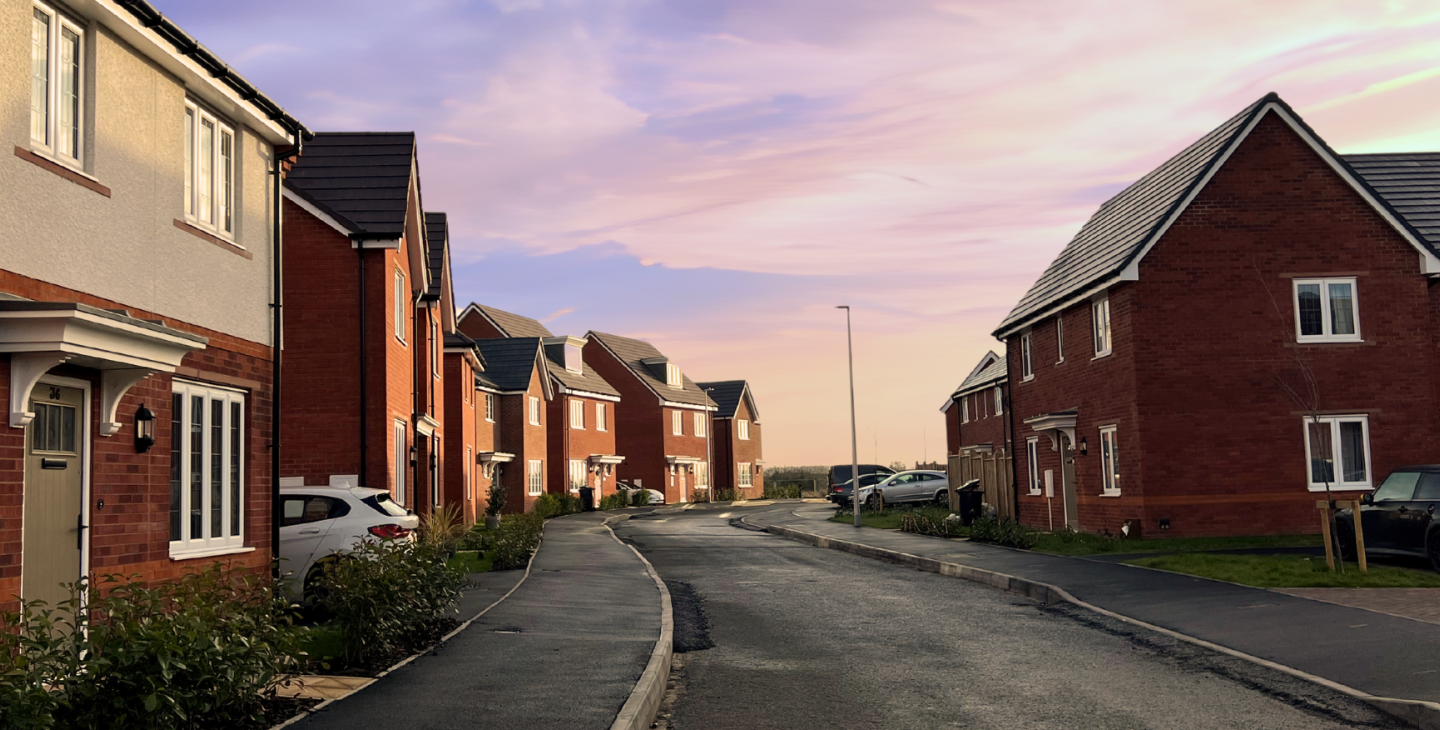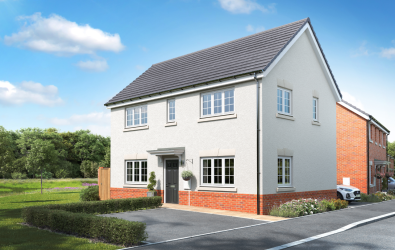New build properties are popular if you’re getting your foot on the property ladder, looking to find more space for a growing family or want to downsize later in life. As with any other major purchase, you should approach buying a new-build home with the right mindset and an understanding of the process. Below we run through the top tips for buying a new build home, especially if this is your first time experiencing the property buying process.
What are the benefits of a new build house?
People often consider buying a new-build property because of the following benefits:
- They like to know that they’ll be the first person living on the property and there won’t be issues caused by previous homeowners.
- Maintenance and repairs are generally minimal, provided you’ve purchased with a trusted and experienced developer.
- Buyers are often able to choose their fixtures and fittings - such as flooring and kitchen units - to suit their interior design tastes.
- New build properties often make use of new technology and materials to help bring down running costs such as energy usage.
- New homes generally come with guarantees or warranties in the event something happens following your purchase.
Top tips for buying a new-build house
So you’ve decided you want to buy a new build home. What should you do in the run-up to the purchase itself? Below are some of the top tips to consider if you buy a new-build home:
1. Build a relationship with the developer or housing association
Regardless of what you’re buying, performing the right research and identifying the best parties to work with is key to getting a good service and end product. A good first step is researching and choosing the right developer or housing association to help you purchase your new-build property.
Once you’ve decided on where you want to buy, you need to find and research the developers or housing associations in the area. Visit their website, read reviews and browse any forums that might speak to the service they provide. You shouldn’t base your entire decision on someone else’s experience but you can use the information you find to build a better idea of how they operate.
2. Speak with people in a similar position to you
In some cases, you may purchase a property on a development that is already partially built. Try speaking with your future neighbours to get an idea of how the purchase process panned out and what questions you might have for your developer.
If you don’t have any opportunities to speak with people in one development, identify other sites that the developer/association worked on and speak with people there. They may be able to provide insights into their experiences and what you need to look out for going forward.
3. Perform your due diligence
Many developers or associations have a panel of conveyancing solicitors or mortgage providers that they can provide you with.
While this is an extremely helpful service, take the time to do your research around these entities and see how they might be able to help you. You don’t need to choose to work with these property professionals and if you feel more comfortable working with an independent solicitor, for example, you may choose to do so.
4. Plan around your purchase
A vital part of maximising the value of your purchase is to consider ‘future-proofing’. This is where you buy a new-build property that you can comfortably stay in for a long time. While you might not end up doing so, it’s good to have the option available.
Ask yourself questions such as: If I want a partner to move in here eventually, is there enough space? If I find myself starting a family, can we do so in this property? If you purchase with the future in mind, you’re less likely to have to start the process all over again when you find your lifestyle changes.
5. Think about financing
How you’re going to purchase your property is a critical part of buying a new-build home. While it’s common to use a mortgage, you want to make sure that you’re getting the right product for your individual circumstances.
If you buy a property under Shared Ownership, for example, you might require a different form of financing than you would if you bought outright.
Likewise, spend time considering more complex questions such as whether you want a fixed-rate or variable rate, plus the size of the deposit you can feasibly put down on the property.
Understanding the products you have available to you and what is right for you are all reasons to speak with a mortgage professional who can help you determine the best products.
6. Get a good idea of the specifications and how the build is progressing
You must get as much detail as you can about the property during the build process. If you’ve chosen out specific features, for example, you want to make sure that these elements are being fitted correctly.
Take the time to ask the developer or housing association for this information and at each stage of the build progress, if possible, take the time to visit the site to check that everything is up to a good standard - you’re mainly looking at materials, finish and overall design.
It’s crucial to make sure you’re happy with the overall finish of the home before you complete.
7. Understand your warranties, guarantees and contractual elements
Most developers provide warranties on new-build homes, as well as guarantees on smaller things such as white goods.
Make sure that you understand the time constraints of these warranties and what they involve. This way, if anything does go wrong, you know exactly where you stand. A developer, for example, may place a 10-year warranty on the property, which covers successive owners in the case of urgent large repairs or maintenance.
Similarly, check to see if your contract has snagging periods or similar contractual elements. These can be useful for helping you sort out smaller issues before you complete on your home.







